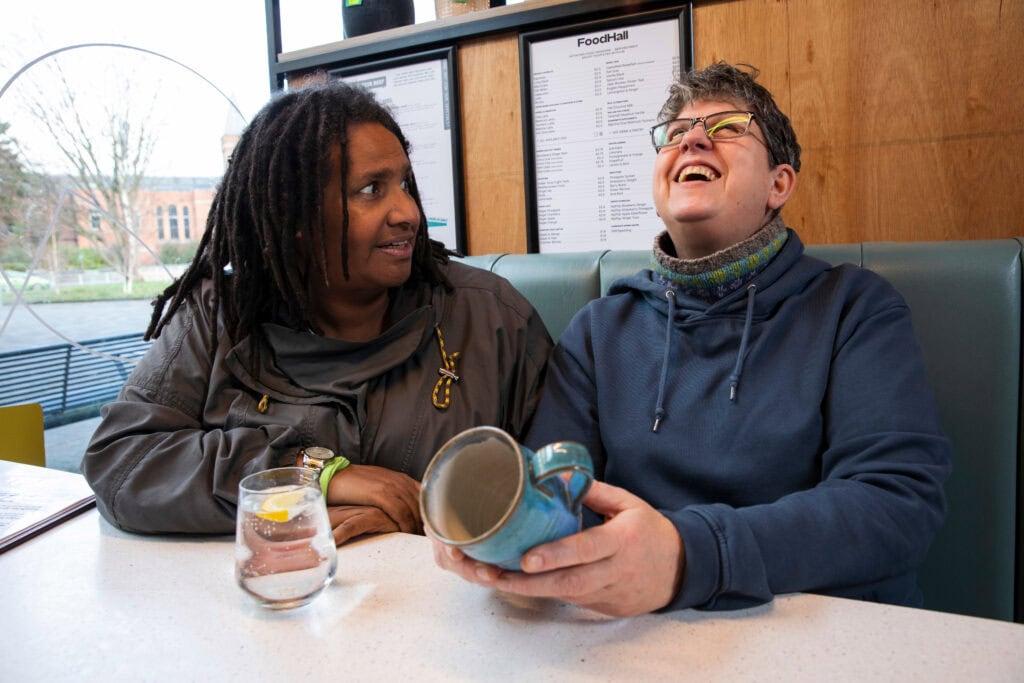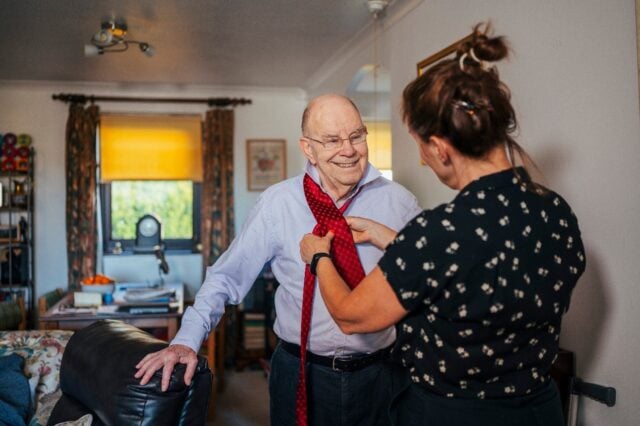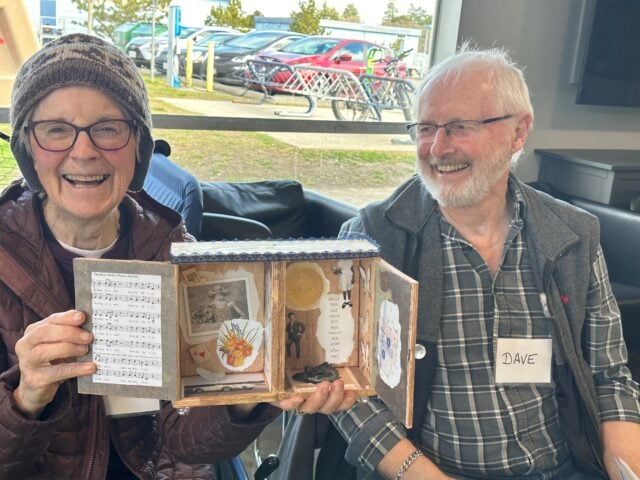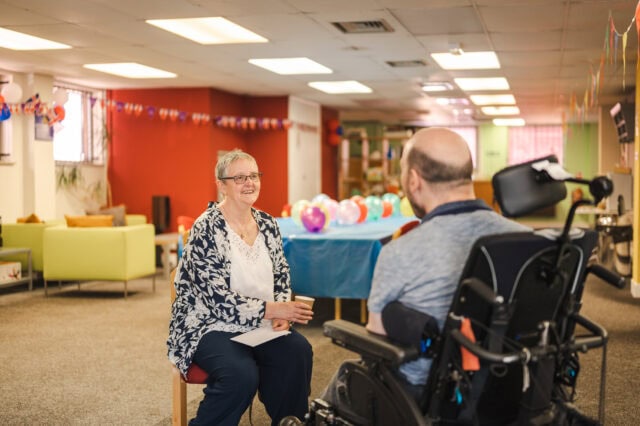By Monique Beneteau

I recently saw in a newsletter on healthy aging that a survey by Stats Canada revealed that one in four Canadians over 15 years of age is a caregiver. It’s funny. There are times when I feel I’m out in the wilderness by myself.
Over seven years ago, a friend moved into my home when her housing became precarious. At the time, she was dealing with a chronic physical health issue, but I noticed a few years later that something else was off. It took some time, but my friend was finally diagnosed with vascular dementia. In September 2022, she moved into long-term care. I visit her three times a week to provide vital social and some practical support—according to her, nobody else can make her bed the right way except me!
My friend’s dementia has since progressed. She still knows me and trusts me but her level of frustration about finding the right word and putting a cogent thought together is getting more and more challenging. Her chronic physical condition and depression and anxiety can sometimes make coping with her dementia that much more difficult for her. I’ve become well acquainted with her paranoia, irritability and sometimes, her apathy.
The staff in the long-term care home are doing their best but it’s obvious that some of them have little training in addressing some of the behaviours that are expressed in later stages of dementia. I try to seek help from the staff, mostly the social worker, and I joined the Friends and Family Council for support, but I have had to do a lot of research and investigating on my own. I’m grateful that the work I do brings me in contact with a lot of great resources like webinars, handouts, and websites like the Behaviours in Dementia Toolkit.
When I search online, I can get so overwhelmed because dementia is complex with many different factors to think about. I want to make sure I’m looking at credible information so I’m thrilled that there is one place I can go and feel confident that I’m getting reliable information – the Behaviours in Dementia Toolkit. This Toolkit is great because if you have something specific you want to investigate, you can do a search…which is what I did. I’m most concerned about my friend’s paranoia so I searched the Toolkit for information and strategies. These resources each gave me a nugget that I have found very helpful:
Handout for Individuals & Caregivers: Hallucinations, Delusions and Paranoia
The handout provides a helpful explanation of the difference between a hallucination and a delusion and describes possible triggers. It also shares a long list of strategies. I knew some of them but I’m definitely going to look for patterns. I journal all my visits so I’m going to review my notes to see if I can find a trigger or two. The examples of how to offer reassurance and to use physical touch to redirect attention will get used the next time I visit.
Managing anxiety about changes to memory, thinking and perception
https://forwardwithdementia.ca/article/managing-anxiety/
I want to support my friend, but I also don’t want to feed into the paranoia. The resource mentioned above as well as this webpage from Forward with Dementia are reinforcing for me the importance of validating feelings over seeking agreement. For example, saying something like, “I can see how that would be upsetting…” is something that I will try. In other words, I plan to focus on the feelings rather than the words.
Antipsychotics and other drug approaches in dementia care
https://www.alzheimers.org.uk/about-dementia/treatments/drugs/antipsychotic-drugs
Recently, I learned that my friend had been prescribed an antipsychotic medication to deal with her paranoia. The doctor increased her dosage, and the side effects were terrifying. The information in this resource makes me even more concerned about its use. I plan to read it carefully and then bring it with me to the home so I can speak with the nursing staff.
_ _ _ _

This article was contributed by Monique Beneteau, a care partner and supporter of a friend living with dementia in long term care.
Would you like to curate a resource list for the Behaviours in Dementia Toolkit? Reach out to CCSMH knowledge broker Nick Ubels at [email protected]





